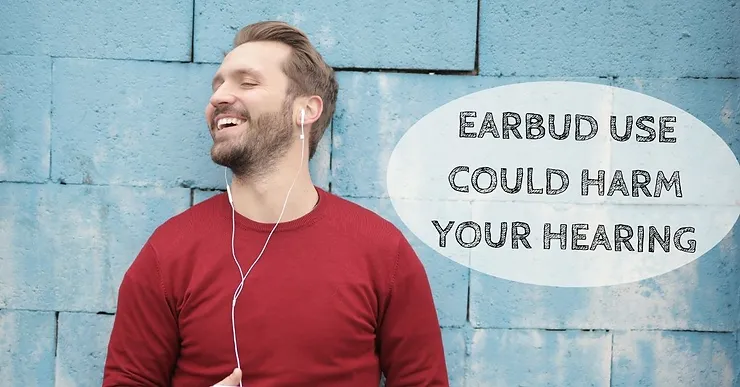
You see people with earbuds everywhere nowadays, from the gym to busy city streets. You might even listen to music when exercising or when spending time at home. While these devices have undoubtedly been useful, they have come under some recent scrutiny as they are easily used irresponsibly and can therefore endanger our hearing.
Turning up the dial on hearing loss
A 2015 report by the World Health Organization showed that the use of earbuds between 1994 and 2005 had increased by 75 percent. The study also found that individuals between the ages of 12 and 35 from middle and high-income countries were often exposed to unsafe sound levels with their portable music devices.
The organization concluded from these studies that 1.1 billion young people (aged between 12-35 years) are at risk of hearing loss because of noise exposure in recreational settings.
Why are earbuds particularly dangerous?
Your hearing can be adversely affected by putting earbuds in your ears for extended periods. It can prove to be very harmful to have a continuous stream of noise from earbuds located at your ear canal entrance.
Let’s familiarize ourselves with how we hear in the first place. Tiny hairs called hair cells walls inside the cochlea, a fluid-filled organ found in the inner ear. These minute hairs are instrumental in bringing sound waves from the cochlea to the auditory nerve and communicating with the brain. The stronger the sound waves, the more these hair cells bend the sound waves pass. Harm occurs when the frequency and length of the sound waves stress the hair cells to a point where they begin to die.
For instance, the explanation is that the cilia have been bent to a point where they need time to return to their former ability when people have attended a noisy concert and can’t hear properly for a while. When the frequency of sound and exposure exceeds a degree that permanently affects the hair cells, they can no longer pick up sound to transfer for the brain. This results in hearing loss.
With earbuds, sound waves don’t have to travel very far to reach the sensitive hair cells in your inner ear, which means the waves are still very powerful when they get there. This increases the chances of accidentally listening to music too loudly and damaging our ears.
How to practice responsible earbud use
If you have noticed changes in your hearing, contact us. We can run tests to see if your hearing has been damaged and prescribe treatments as needed.
If you have not yet found something wrong with your hearing, you are in a great position to protect your hearing by using personal media devices safely. Here is some advice you can follow:
Turn it down. While listening, turn the volume down. Reduce the amount to below 60 percent of your device’s full volume capacity.
Try noise-canceling headphones. Many people use headphones to block out other noises and keep turning up the volume as outside noises get louder. If this sounds like you, try wearing noise-canceling headphones. These work by identifying the frequency of the sounds around you and creating sound waves that are its exact opposite, directly canceling out the external noise. As a result, the sounds around you are minimized, and to compensate, you don’t have to turn your sound up.
Wear headphones instead. Music devices sitting over your ears, generally covering the whole ear, are what we call headphones. The distance between headphones and earbuds from sound to the eardrum can seem inconsequential, but it can make a massive difference in the long run.
Grab a break. Anything as simple as taking a break from your headphones will help stop noise-caused hearing loss. It’s recommended that you take a 5-minute break every 30 minutes, or a 10-minute break every 60 minutes.
Set a volume limit. Your smartphone should allow you to set your settings to a custom volume limit. To decide whether you can set a volume limit, take a look at your phone settings.
Contact us today to set up an appointment if you are at all concerned about your hearing. Knowledge is power, and that is especially true when it comes to your hearing health.
